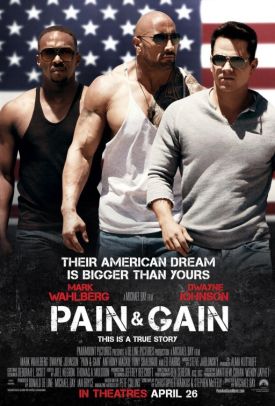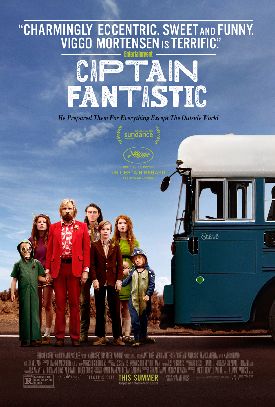Frances Ha
The title of Noah Baumbach’s Frances Ha is an allusion to something at the very end of the film, a visual suggestion that part of the heroine has been amputated during the course of what we have seen during the previous 86 minutes — a part that has something to do with the youth, exuberance, innocence, enthusiasm, idealism and a powerful attachment to one other person that we see in her in the beginning. The danger of pointing up this moral to the story, however, is that it invites the rejoinder: what did Mr Baumbach (The Squid and the Whale, Greenberg) think was involved in growing up? In order for a movie like this to work very well, you have to put in something that shows how the central character’s learning and maturation process, otherwise so ordinary, is in fact special and not just what pretty much everybody goes through — or else how it can stand for something bigger and more important than itself.
As it happens, Frances Ha is put together as, among other things, an hommage to François Truffaut’s greatest film, Jules et Jim (1962), a movie which did exactly that by projecting the friendship of its two central characters and their rivalry for the love of the same woman against the backdrop of twenty eventful years of European history, including the modernist movement in art, World War I and the rise of Hitler. The learning process of Jules and Jim, their growing up if you want to put it that way, is that of a whole culture which shared their youthful illusions about beginning the world anew. Mr Baumbach accompanies Frances’s adventures with music by Georges Delerue taken from several Truffaut films, including Jules et Jim, which is further recalled by its quaintly retro black-and-white stock and several Truffaut-like tracking shots of Frances (Greta Gerwig) running, skipping or bicycling in the free-spirited manner associated with that film’s heroes.
Moreover, he appears to be presenting the friendship between his two central characters, Frances and Sophie (Mickey Sumner) as loosely paralleling that of Jules and Jim, but in the feminine key. In this case, however, what comes between them is neither war nor a common love interest but the ordinary vicissitudes of adult life. Sophie, who has a better and more reliably paying job than Frances, moves to an apartment that the latter can’t afford and gets involved with a guy (Patrick Heusinger) whom Frances doesn’t much like and whom she, Sophie, later follows when he is sent to Japan on business. Meanwhile, Frances clings hard to her dream of being a professional dancer in spite of increasingly strong indications that she hasn’t quite got what it takes. The aspirational “story of us” in which these two young women indulge themselves near the beginning, a story of fame and success and riches to come, turns out to be no more fantastical than the solidity of the friendship itself, for all Frances’s repeated insistence that “We’re the same person.”
Her saying so is in fact a good indication of the extent to which her life is run on romantic illusion that must, eventually come down to earth. And at that level, we may find the film to some extent redeemed by the comedy of manners which is always lurking just beneath the surface of the banal moral drama at its heart. A favorite moment of mine comes when Frances gets a tax refund and offers to take one of her new roommates, Lev (Adam Driver), out to dinner. Lev says to her: “Just because you bought dinner doesn’t mean I’m going to sleep with you.” Frances is taken aback, and Lev, who apparently has no desire to sleep with her anyway, has to explain: “I was pretending to be a liberated woman.” His idea of a liberated woman — one who will allow you to buy her dinner and then not sleep with you — makes him into a good illustration of what the girls mean when, early on, they talk of someone, perhaps himself, as “a nice guy — you know, for today.”
The “today” part is what makes the film worth seeing. Mr Driver, who plays Lena Dunham’s principal boyfriend in the HBO series “Girls” is just one of the things that show has in common with Frances Ha, which aspires to a similarly clear-eyed and frequently appalling portrait of sexual mores among the young in the early 21st century. And in both, marriage and the adult existence it portends is a kind of ghost at the youthful feast of self-indulgence — except that we see far less of the more titillating kinds of self-indulgence in Frances Ha than we do in “Girls.” Here the marriages alluded to are mostly those of older people, including Frances’s parents — played by Miss Gerwig’s real-life parents in her real-life home town of Sacramento — not those of the breeding stock the 20-something kids all resist becoming. “We’re like a lesbian couple that doesn’t have sex anymore,” says Frances of her relationship with Sophie when they are living together. And, when Frances later moves in with Lev and Benji (Michael Zegen), she and Benji proceed to fall into the same pattern: “I guess we are like a married couple: we talk and we don’t have sex.”
The implied remembrance of a social custom now fallen into desuetude is perhaps also present in the observation that the kids’ domestic arrangements at Lev and Benji’s makes them feel “we’re like a sitcom.” It reminds us of the extent to which they are, like Miss Dunham’s characters and unlike Truffaut’s, always watching themselves, often critically — perhaps because they think it will help them to pick up clues as to how they’re supposed to behave in a world where traditional social customs no longer provide much in the way of guidance. When Benji gives voice to his rather tiresome running joke about Frances’s being “undatable,” he might even be seen as playing on the other meaning of the word: that is, not belonging to any identifiable time. He ends by notifying her that she has become datable by asserting his own undatability. Both have little or no sense of themselves as belonging to any particular time — because they know of no other time than their own.
Place is a different matter. Always we are spiritually in New York City and in that tight little social set of New Yorkers to which Frances belongs, even though there are token shifts of setting to Sacramento, Paris and Poughkeepsie. In all three places she seems only accidentally present, still locked in with herself and away from any sustaining social structure which might have provided something more in the way of meaning to her trajectory than her similarly self-absorbed friends can do. To be sure there is a comic potentiality in this mutual incomprehension between the kids and the adult world they mostly try to avoid, a potentiality better exploited by “Girls,” but it also makes us too much unprepared for and uncomprehending of Frances’s first tentative steps towards making her peace with that world. Maybe this is because we are no more certain of its existence or its necessity than she is.
Discover more from James Bowman
Subscribe to get the latest posts to your email.







